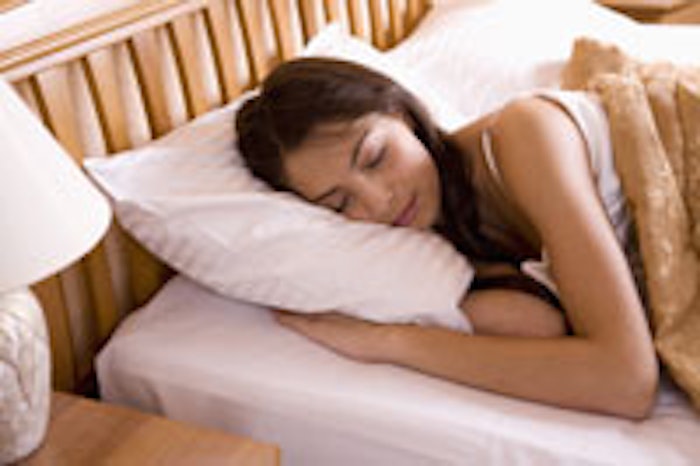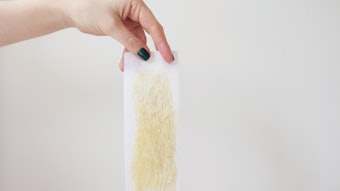
In a first-of-its-kind clinical trial, physician-scientists at University Hospitals (UH) Case Medical Center found that sleep quality impacts skin function and aging. The recently completed study, commissioned by Estée Lauder, demonstrated that poor sleepers had increased signs of skin aging and slower recovery from a variety of environmental stressors, such as disruption of the skin barrier or ultraviolet (UV) radiation. Poor sleepers also had worse assessment of their own skin and facial appearance.
The research team, led by primary investigator Elma Baron, MD, presented their data this spring at the International Investigative Dermatology Meeting in Edinburgh, Scotland in an abstract titled “Effects of Sleep Quality on Skin Aging and Function.”
“Our study is the first to conclusively demonstrate that inadequate sleep is correlated with reduced skin health and accelerates skin aging. Sleep deprived women show signs of premature skin aging and a decrease in their skin’s ability to recover after sun exposure,” said Baron, director of the Skin Study Center at UH Case Medical Center and associate professor of Dermatology at Case Western Reserve University School of Medicine. “Insufficient sleep has become a worldwide epidemic. While chronic sleep deprivation has been linked to medical problems such as obesity, diabetes, cancer and immune deficiency, its effects on skin function have previously been unknown.”
Skin functions as an important barrier from external stressors such as environmental toxins and sun-induced DNA damage. The research team set out to determine if skin function and appearance is also impacted by sleep quality, which is vital to the growth and renewal of the body’s immune and physiological systems.
The study involved 60 pre-menopausal women between the ages of 30 and 49, with half of participants falling into the poor quality sleep category. The classification was made on the basis of average duration of sleep and the Pittsburgh Sleep Quality Index, a standard questionnaire-based assessment of sleep quality. The study involved a visual skin evaluation and participation in several non-invasive skin challenge tests including UV light exposure and skin barrier disruption. Additionally, participants filled out a sleep log for one week to quantify sleep duration.
The researchers found statistically significant differences between good and poor quality sleepers. Using the SCINEXA skin aging scoring system, poor quality sleepers showed increased signs of intrinsic skin aging including fine lines, uneven pigmentation and slackening of skin and reduced elasticity. In this system, a higher score means a more aged appearance. The average score in the good quality sleepers was 2.2 versus 4.4 in poor quality sleepers. They found no significant difference between the groups in signs of extrinsic aging, which are attributed primarily to sun exposure, such as coarse wrinkles and sunburn freckles.
The researchers found that good quality sleepers recovered more efficiently from stressors to the skin. Recovery from sunburn was more sluggish in poor quality sleepers, with erythema (redness) remaining higher over 72 hours, indicating that inflammation is less efficiently resolved. A Transepidermal Water Loss (TEWL) test was used at various time points to determine the ability of the skin to serve as an effective barrier against moisture loss. In measurements 72 hours after a skin barrier stressor (tape-stripping), the recovery of good quality sleepers was 30% higher than poor quality sleepers (14% vs. -6%) demonstrating that they repair the damage more quickly.
Additionally, poor quality sleepers were significantly more likely to have a higher Body Mass Index (BMI). For example, 23% of good quality sleepers were obese compared to 44% of poor quality sleepers. Not surprisingly, self perception of attractiveness was significantly better in good quality sleepers (mean score of 21 on self evaluation) vs. poor quality sleepers (mean score of 18).
“This research shows for the first time, that poor sleep quality can accelerate signs of skin aging and weaken the skin’s ability to repair itself at night,” said Daniel Yarosh, MD, senior vice president, Basic Science Research, R&D, at The Estée Lauder Companies. “These connections between sleep and skin aging, now supported with solid scientific data, will have a profound effect on how we study skin and its functions. We see these findings as yet another way we can direct our scientific research toward the real needs of our customers who want to look and feel their best.”










